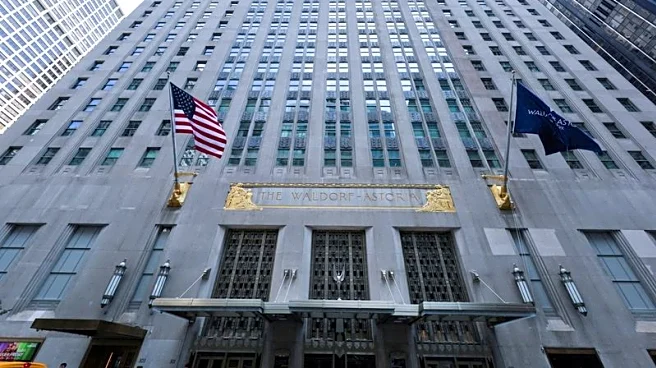What's Happening?
The COP30 summit in Belém, Brazil, marked ten years since the Paris Agreement, yet significant progress in climate action remains elusive. Despite the agreement's goal to limit global warming to 1.5 degrees
Celsius, recent reports indicate a lack of substantial steps towards reducing fossil fuel use and deforestation. The Climate Action Tracker project has revised its warming estimates, showing a slight improvement, but the latest report suggests global progress is stalling. The summit failed to produce meaningful commitments, with many countries missing deadlines to update their targets. Renewable energy is growing, but fossil fuel investments continue to counterbalance these efforts. The summit's outcomes reflect a broader trend of climate action stalling, influenced by political priorities and economic challenges.
Why It's Important?
The stagnation in climate action poses significant risks to global efforts to combat climate change. The failure to advance meaningful policies at COP30 underscores the challenges in achieving the Paris Agreement's goals. As climate impacts become more severe, the lack of progress could lead to increased environmental and economic instability. The continued investment in fossil fuels, despite the growth of renewable energy, highlights the difficulty in transitioning to a sustainable energy future. This situation affects not only environmental health but also economic stability, as extreme weather events contribute to rising costs and food prices. The global community's inability to prioritize climate action may exacerbate these issues, leading to more severe consequences for vulnerable populations.
What's Next?
The COP30 summit's lack of progress suggests that future climate negotiations will need to address the underlying political and economic barriers to effective action. Countries may need to reassess their priorities and commitments to ensure that climate goals are met. The upcoming meetings and reports will likely focus on finding ways to balance economic growth with environmental sustainability. Stakeholders, including governments, businesses, and civil society, will need to collaborate to develop innovative solutions that address both immediate and long-term climate challenges. The pressure to act will increase as climate impacts become more pronounced, necessitating a shift in strategies to achieve meaningful progress.










